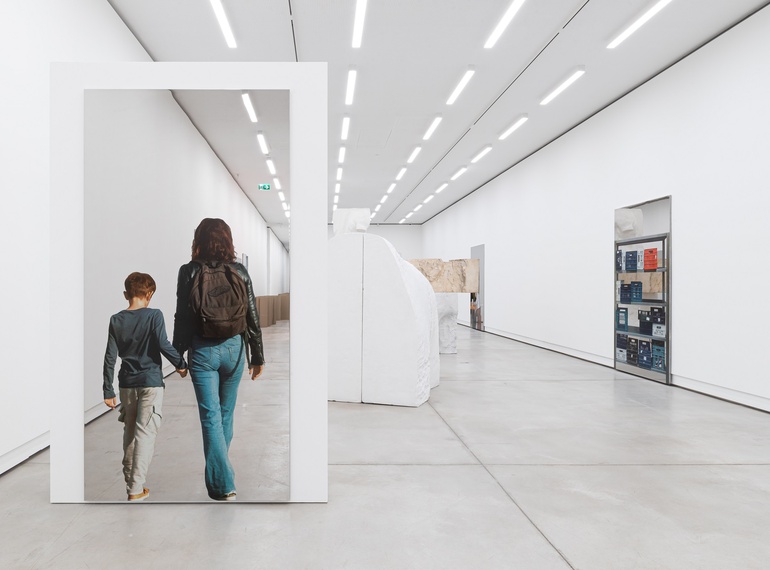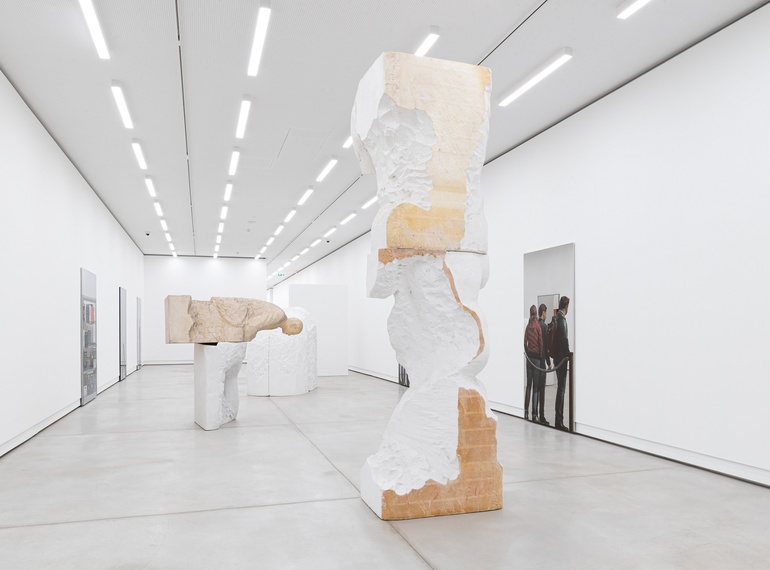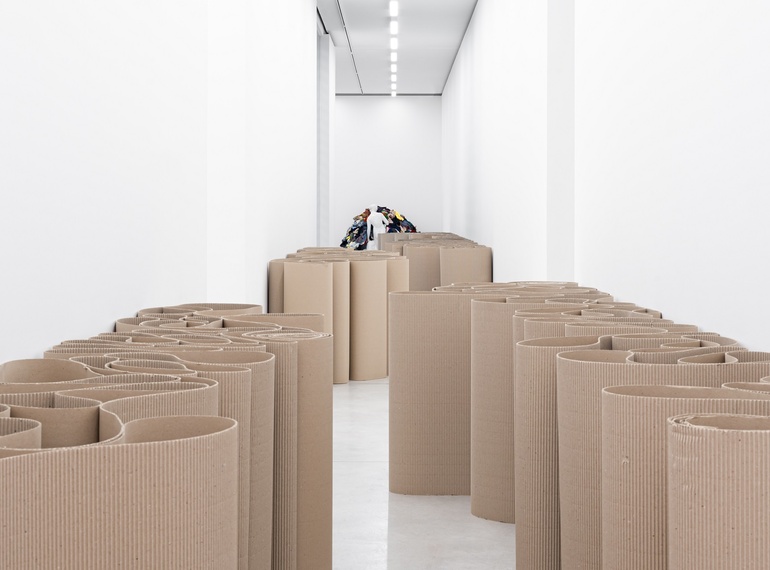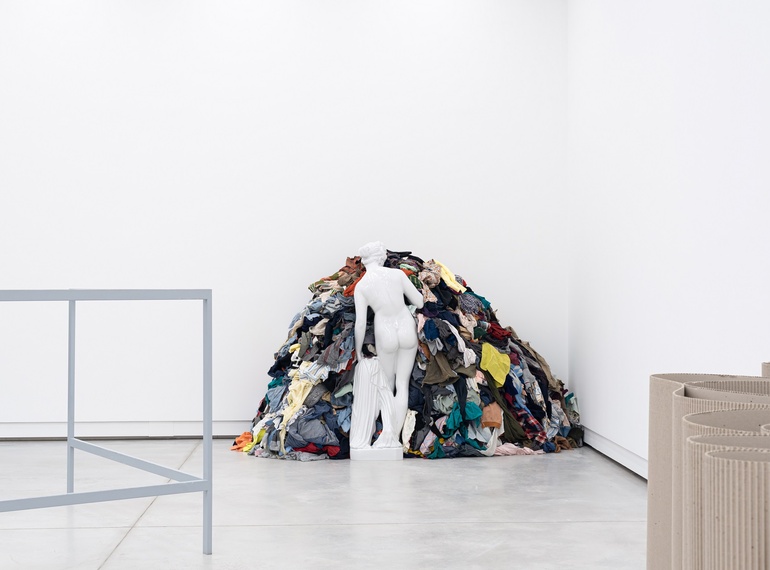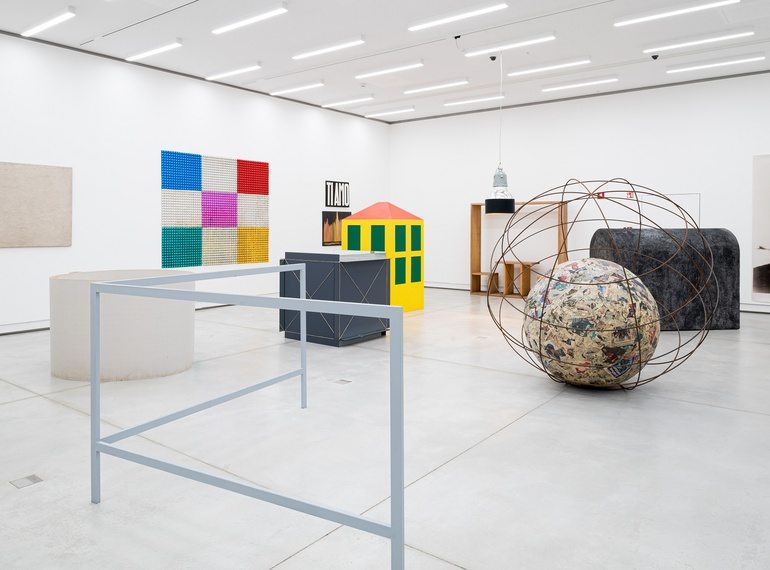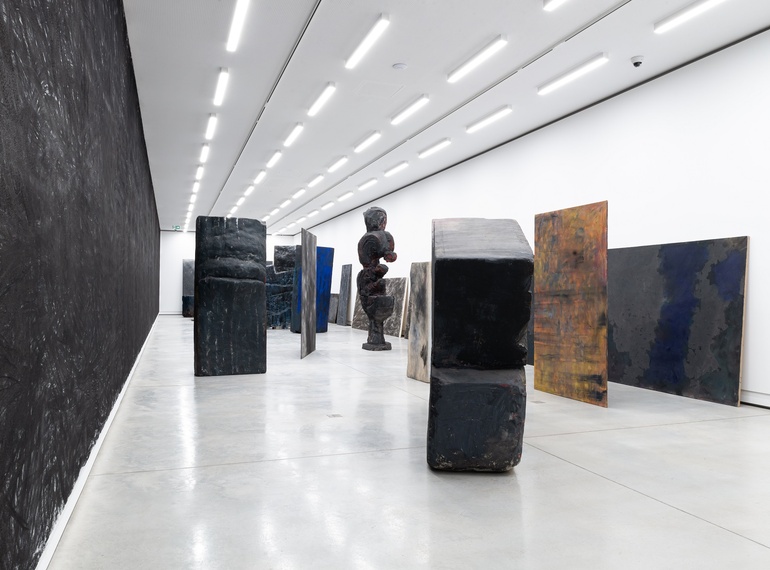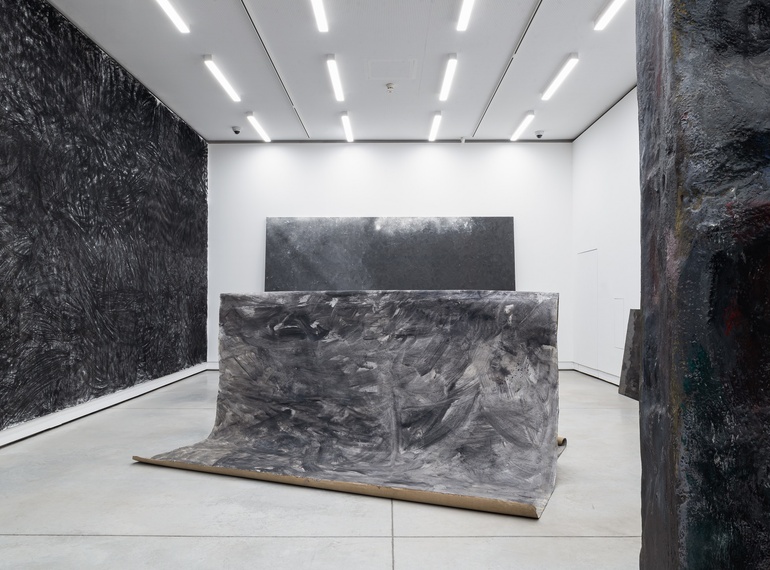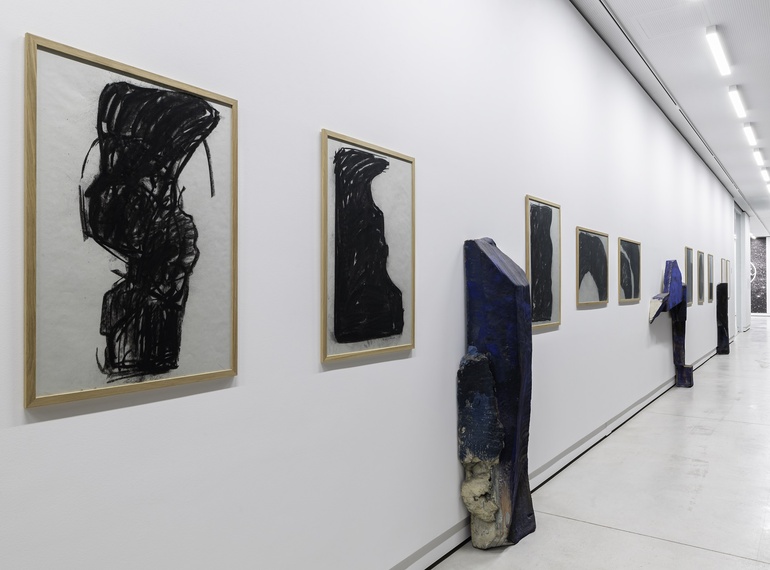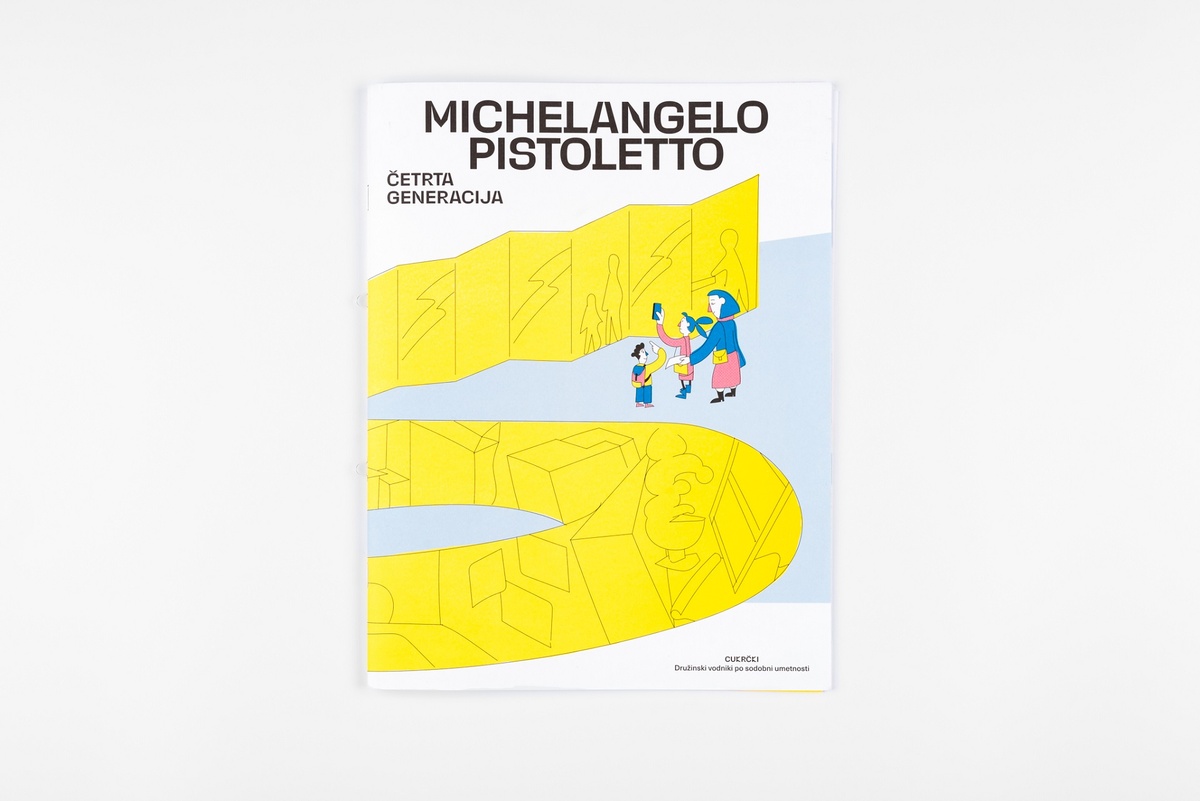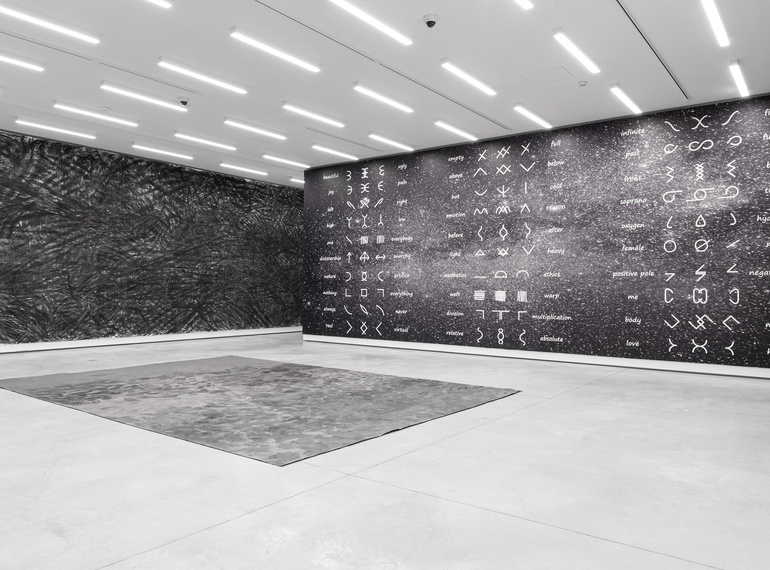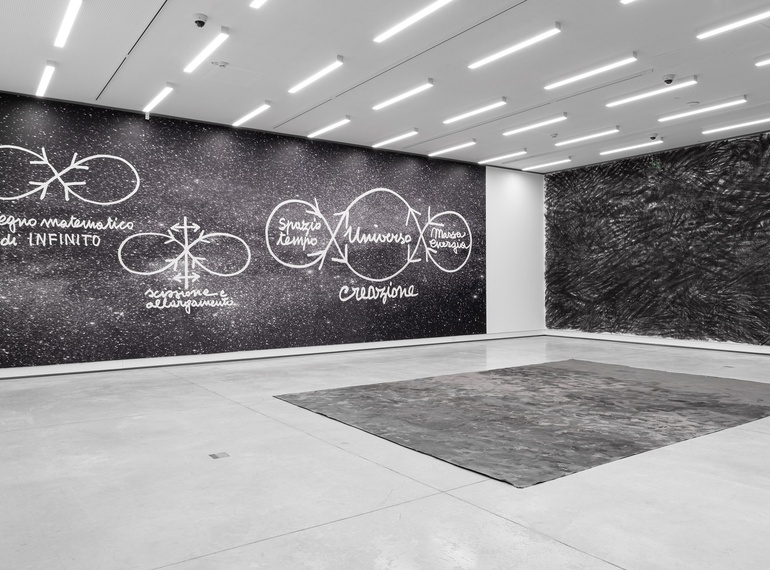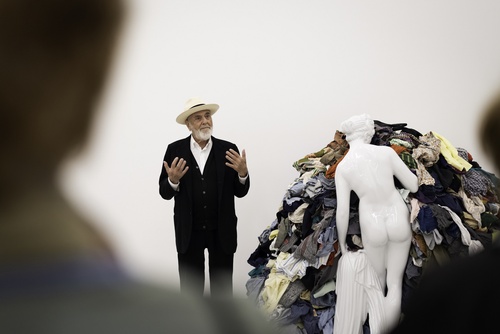Michelangelo Pistoletto
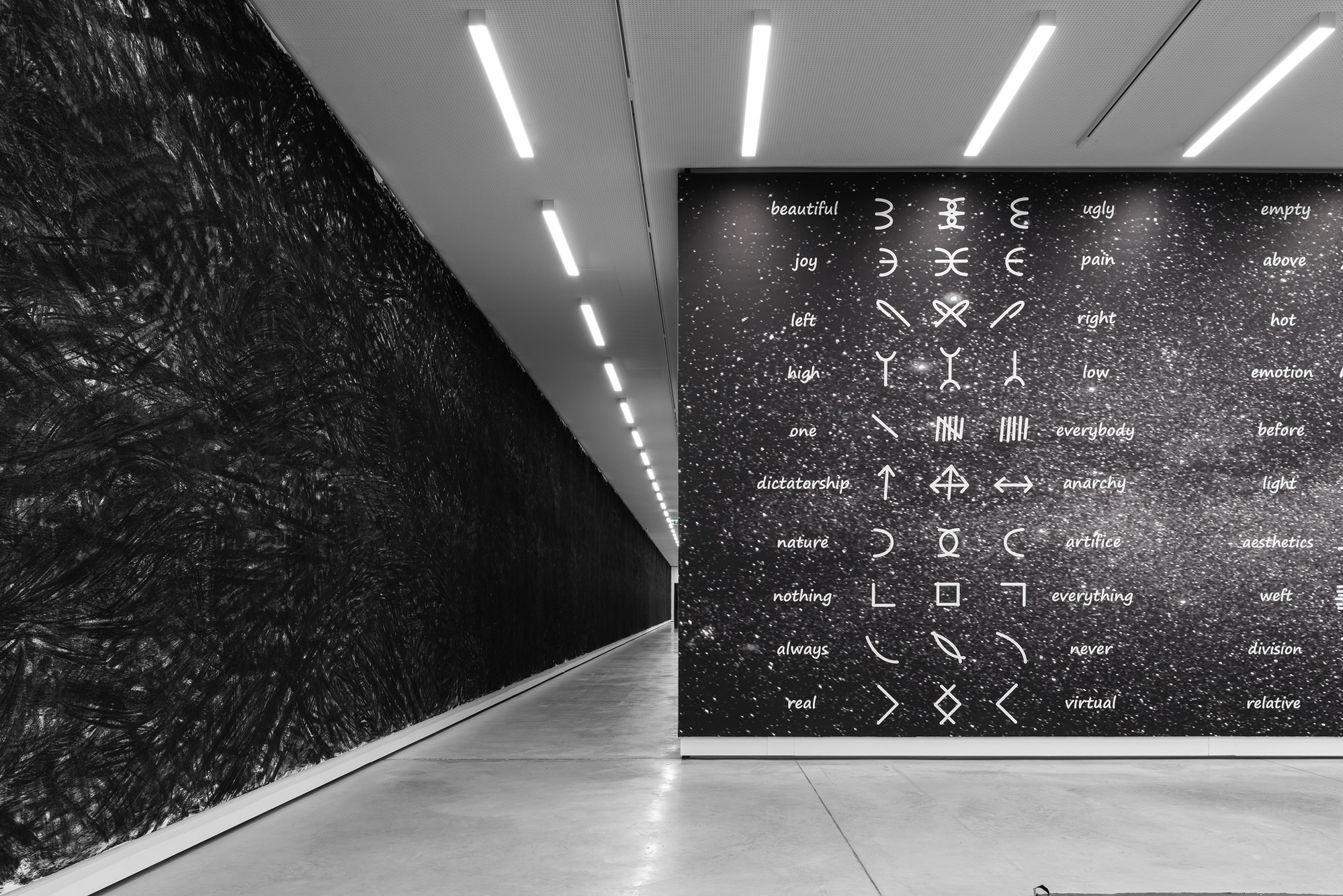
Michelangelo Pistoletto’s exhibition gives us an insight into the main phases of his creative work since the 1960s, with special emphasis on his “dark” period.
Presenting a large part of the oeuvre of one of the great 20th century artists, Michelangelo Pistoletto’s exhibition gives us an insight into the main phases of his creative work since the 1960s, with special emphasis on his “dark” period, which served as our point of departure in conceiving the exhibition, selecting the works, and framing the dramaturgy of the display in the Cukrarna Gallery in collaboration with the Zerynthia Association for Contemporary Art in Rome. The title of the exhibition, Fourth Generation, also refers to this time that crucially determined the artist’s subsequent practice. Works from this otherwise seldom presented period, which the artist dubbed Art of Squalor (1985–1989) in one of his texts, are displayed on the second floor of the gallery. In addition to the drawings, paintings, and sculptures, the display includes a black on-site 70-meter wall drawing, executed by the students of the Ljubljana Academy of Fine Arts and Design under the guidance of the artist.
The first floor of the gallery hosts a selection of what are probably Pistoletto’s best-known works, Mirror Paintings, ranging from a self-portrait from 1961 to the most recent additions, next the Minus Objects (1965–1966), which were the first indications of the tendencies of the Arte Povera movement, then works that are now iconic objects of this movement, such as Venus of the Rags (1967), and Pistoletto’s white sculptures from the 1980s.
The exhibition concludes with the Third Paradise, a project that has been at the center of the artist’s creative focus since 2003. The symbol of the project is a reconfiguration of the mathematical sign for infinity. Placing life at the center of infinity, the artist uses the symbol to reflect on the diversity of human relationships and to stress the importance of reconciliation, of individual accountability and responsibility for our fellow human beings and nature.
From the art historical point of view, Michelangelo Pistoletto is one of the most prominent representatives of Arte Povera. Named by the Italian art theorist, critic, and curator Germano Celant in 1967, Arte Povera originated as an attack on the value paradigms of the political, economic, and art systems of the time, bringing a departure from the use of traditional materials and methods in art. Pistoletto’s Minus Objects are an early example of divergence from producing commercially attractive, sellable art objects, and of revolt against the expectations and demands of the art market. Just a year after the Minus Objects, he did his perhaps most emblematic Arte Povera work – Venus of the Rags (1967).
With his projects, intellectual work, and genius for bringing people together, Pistoletto has left a highly distinctive mark on both the Italian and international cultural space. In 1998, he started the foundation Cittadellarte in his hometown of Biella. Covering a wide range of activities, Cittadellarte runs an artist-in-residence program and organizes exhibitions and other events, creating a strong bond between art and life by linking the foundation’s activities with what goes on in society.
In his works, Pistoletto wants to engage viewers in direct dialogue with art, actively include us in the compositions, and above all, encourage us to reflect on time – on the time past, represented by the figures on the mirror surfaces, and on the present of our gaze. Functioning like some kind of weightless bodies, the dark surfaces of the drawings, paintings, sculptures, and the wall on the second floor suggest both black infinity and unstoppable motion somewhere beyond it, absorbing light, endlessly distant. The present is captured beyond time, and the space has shrunken, producing a feeling of void. Pistoletto’s exploration of temporality comprises the past caught in the works, the present of the viewer, and our common future augured by the symbol of the Third Paradise, the artist’s socially engaged project encouraging social discourse and pointing in the direction of a possible social transformation.
Curated by Alenka Gregorič
Coordination and production: Eva Bolha, Janja Buzečan, Lenka Đorojević. Public relations: Ajda Borak, Nejc Kovačič. Pedagogical and andragogical programme: Nina Vošnjak; Technical crew: Jože Kalan, Martin Lovšin, Danilo Ončevski, Jernej Vovk, Tomaž Žnidarčič. Special thanks to: Janez Škrlec, Eva Anzeljc, Iris Kren, and Lenka Đorojević for executing the wall drawing.
Special acknowledgment to Giorgio Persano Gallery.
In collaboration with:
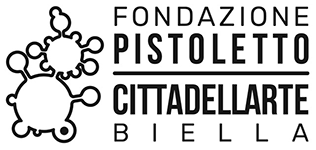 |  |
Supported by:
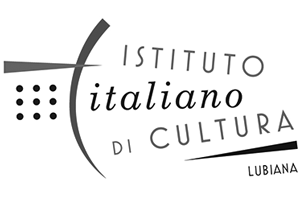 |  |
Opening hours
Tuesday to Sunday: 10.00–19.00
Tickets
Adults: 6 €
Students, retirees, visitors with disabilities: 4 €
Family ticket: 14 €
Admission free: children 7 and under, ICOM, PRESS
